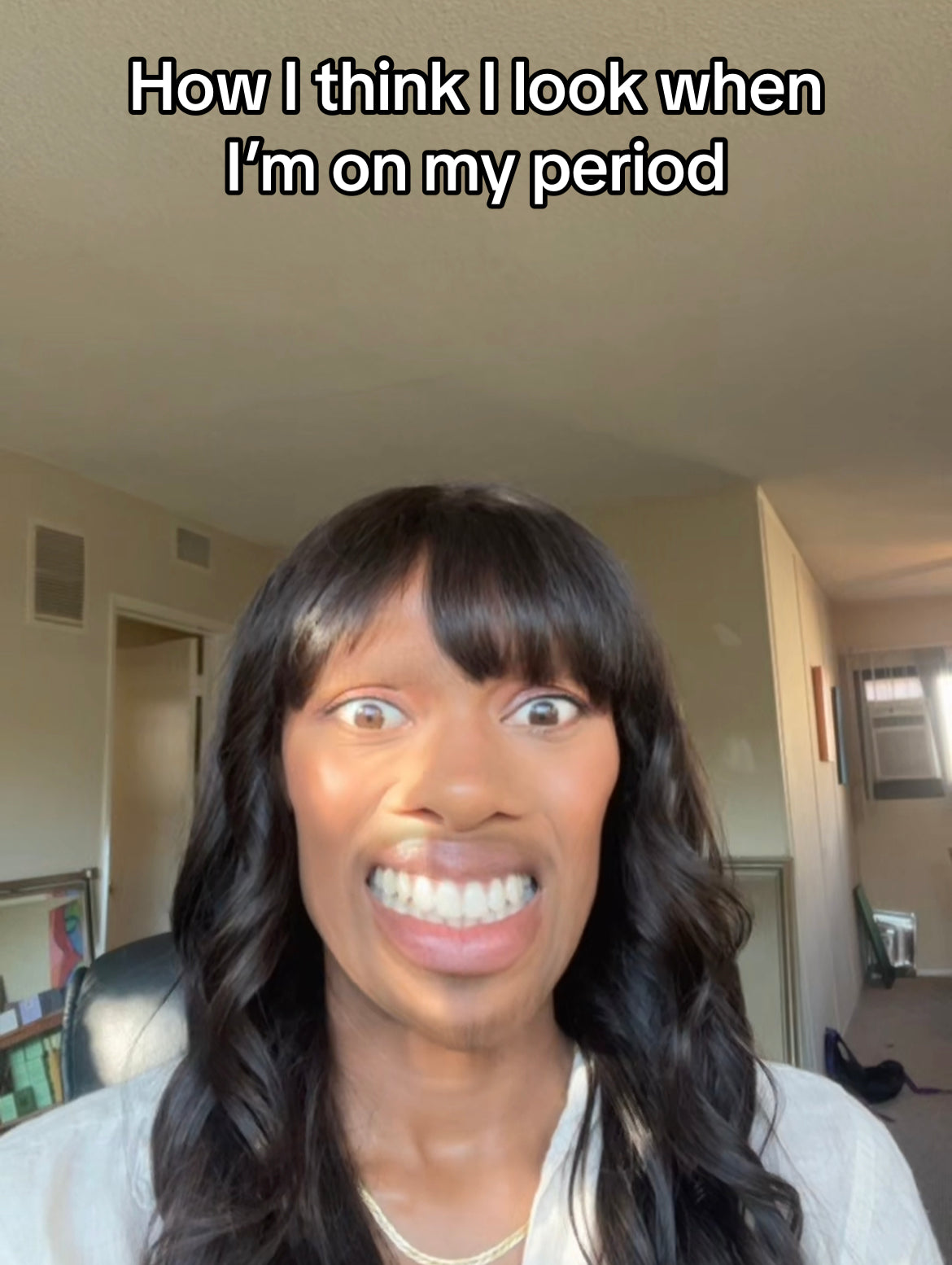Hormones are a tricky thing. They don’t just influence how we feel—they practically curate how we experience ourselves and the world. From our mood to our metabolism, hormones are the silent conductors behind our energy, confidence, skin, and even how we interpret our reflection in the mirror.
They determine how we feel about ourselves, how we show up in our relationships, and of course—how we look and present to the world. But for those of us who deal with extreme PMS or PMDD (Premenstrual Dysphoric Disorder), the experience goes far beyond mood swings. It can trigger something much deeper and more disorienting: body dysmorphia during your period.
When I’m on my period, I can feel—by society’s standards—ugly. Haggard. Puffy. I feel like I look older, bigger, and just... off. But why does this happen every month like clockwork? It turns out that this shift in body image is not all in our heads—it’s physiological. The drop in estrogen that occurs before and during menstruation has a powerful effect on how we feel about ourselves. Estrogen is often associated with that radiant, glowing, feminine energy. When it crashes, so does our self-perception.
Hormonal Changes and Body Dysmorphia
According to Healthline, “Some small-scale studies have found a link between menstrual cycles and body dysmorphia.” A 2013 study of 44 females tracked how participants perceived their body size throughout their cycle. The researchers found that the “largest perceived body size and highest body dissatisfaction” occurred during menstruation.
This isn’t exactly breaking news for most of us. Anyone who's vented to a friend during their cycle—or glanced in a mirror and winced at their reflection—knows this intuitively. The bloating, the irritability, the lack of energy, and the hit to self-esteem all point to the same thing: your hormones are having a moment, and you’re just along for the ride.
For some of us, this hormonal rollercoaster seriously disrupts our lives. It can affect how we show up at work, in our relationships, and with ourselves. The worst part? It happens every month. So… what can we actually do about it?
How to Support Yourself Through PMDD and Hormone Drops
I’ve been experimenting with different ways to ease the intensity of my PMDD symptoms, and one thing that’s helped tremendously is cycle syncing with supplements. I started paying attention to my luteal phase (the 10–14 days before my period) and supporting my body with nutrients and herbs during that time—especially around ovulation and the days leading up to menstruation. This has helped me avoid the massive hormonal crash that plagued me since my teens.
Here are a few additional things that can help support hormonal balance and ease body dysmorphia before your period:
-
Supplements: Magnesium, vitamin B6, omega-3s, and adaptogens like ashwagandha can support mood and hormonal regulation. (Always check with a healthcare provider first.)
-
Blood sugar stability: Eating a diet rich in whole foods, fiber, healthy fats, and protein can help prevent the blood sugar spikes and crashes that often amplify PMS and mood swings.
-
Gut health: A healthy gut helps metabolize estrogen, which supports overall hormonal balance.
-
Lifestyle habits: Sleep, gentle movement, and time outside can drastically improve period mental health and emotional regulation.
-
Mindfulness: Sometimes just naming what’s happening ("This is hormonal, not permanent") can help soften the intensity of it.
-
Switch to chemical-free menstrual products: Pads, tampons, and period underwear made with organic, non-toxic materials (like hemp or organic cotton) can reduce exposure to endocrine-disrupting chemicals, which may aggravate hormone imbalances and PMDD symptoms.
None of this is magic, and nothing replaces medical advice. But small changes—aligned with your cycle—can be powerful tools for those of us dealing with PMDD and hormonal self-esteem issues.
You’re Not Broken—Your Hormones Are Just Loud
This blog isn’t meant to substitute medical advice, nor does the advice in this blog cure or treat disease. It’s simply a reflection of something many of us feel but rarely talk about: that weird, painful sense of disconnection from our bodies during our cycle. That feeling like we’ve shape-shifted into a different person—one we don't recognize or particularly like.
If you’ve ever looked in the mirror before your period and felt disgusted, or like you aged five years overnight, or like you’re spiraling for no reason—this is your reminder: you’re not alone, you’re not crazy, and you’re definitely not broken. Your body is responding to powerful internal shifts.
Let’s normalize talking about it. Let’s support each other. And let’s give ourselves a little extra grace when the estrogen runs dry.


Leave a comment